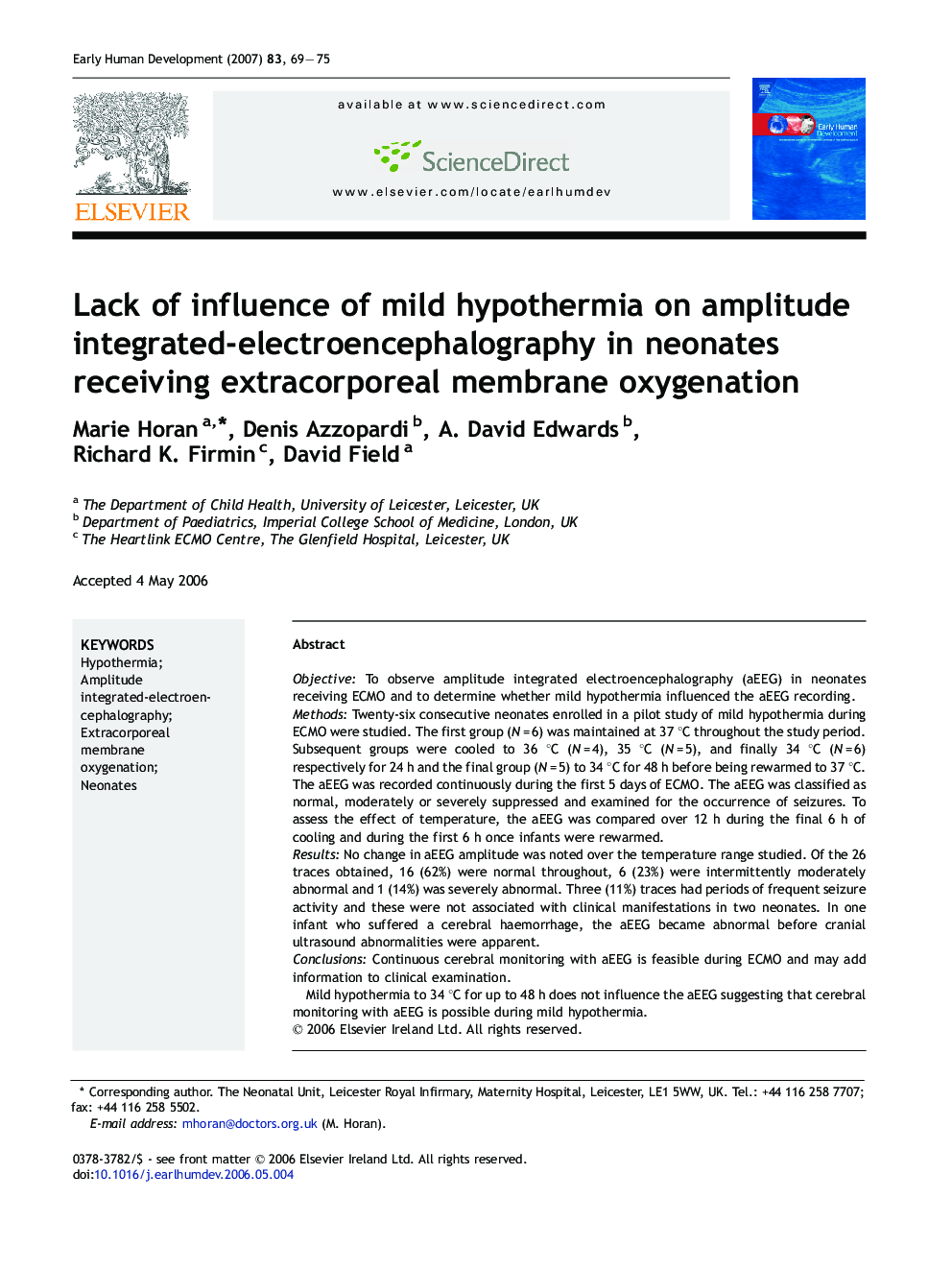| Article ID | Journal | Published Year | Pages | File Type |
|---|---|---|---|---|
| 3917922 | Early Human Development | 2007 | 7 Pages |
ObjectiveTo observe amplitude integrated electroencephalography (aEEG) in neonates receiving ECMO and to determine whether mild hypothermia influenced the aEEG recording.MethodsTwenty-six consecutive neonates enrolled in a pilot study of mild hypothermia during ECMO were studied. The first group (N = 6) was maintained at 37 °C throughout the study period. Subsequent groups were cooled to 36 °C (N = 4), 35 °C (N = 5), and finally 34 °C (N = 6) respectively for 24 h and the final group (N = 5) to 34 °C for 48 h before being rewarmed to 37 °C. The aEEG was recorded continuously during the first 5 days of ECMO. The aEEG was classified as normal, moderately or severely suppressed and examined for the occurrence of seizures. To assess the effect of temperature, the aEEG was compared over 12 h during the final 6 h of cooling and during the first 6 h once infants were rewarmed.ResultsNo change in aEEG amplitude was noted over the temperature range studied. Of the 26 traces obtained, 16 (62%) were normal throughout, 6 (23%) were intermittently moderately abnormal and 1 (14%) was severely abnormal. Three (11%) traces had periods of frequent seizure activity and these were not associated with clinical manifestations in two neonates. In one infant who suffered a cerebral haemorrhage, the aEEG became abnormal before cranial ultrasound abnormalities were apparent.ConclusionsContinuous cerebral monitoring with aEEG is feasible during ECMO and may add information to clinical examination.Mild hypothermia to 34 °C for up to 48 h does not influence the aEEG suggesting that cerebral monitoring with aEEG is possible during mild hypothermia.
